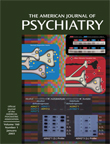To Comfort Always
To cure sometimes, to relieve often, to comfort always.
Hippocrates
I was the 15th psychiatrist he had called before he could even get an appointment; they all had been “too busy.” It was the late 1980s, and I think one of them was “too busy” to see him because Donal Casey (not his real name) was openly gay. I’ll bet that five or six refused to see him because Mr. Casey was 80 years old. But I’m sure the rest were put off by his telling them outright he had inoperable lung cancer.
It’s too bad really. If they had asked one more question on the telephone, they would have found out that Donal Casey had been the premier makeup artist in Hollywood’s Golden Age of movies (1935 to 1950). Once his despondent mood had been stabilized with imipramine, he turned out to be the most remarkable raconteur I’d ever met. He knew “everyone” from the stage and screen and liked nothing more than recounting juicy gossip about them to me.
He had separated from his partner of 20 years, and his social life consisted of being an escort to wealthy women of a certain age. Thus, he obtained at least one free meal at a posh restaurant and saw one Broadway show each month. He had no living family left and relied on various old friends for company. He stopped his two-pack-per-day smoking habit cold turkey when he got the diagnosis of lung cancer, but he drank heavily and had no intention of cutting down on one of “my few remaining indulgences.”
When I first started to see him, he was just beginning a course of radiotherapy. One of the few times I heard him complain about his condition was when his hair began to fall out in clumps (“I will not wear a rug like Crosby”). He decided on the “Yul Brenner look.” Other than that, there were no self-pitying moans of “Why me?”
Although we did some delving into his past, much of our work involved his difficulties navigating through the complex healthcare system. And there were movies. Since he saw two or three movies a week, he enjoyed giving me his detailed recommendations in our weekly sessions, what to see and what to avoid. Other than a chronic cough, he did well physically for almost a year.
One day he called me to cancel our session; he had never missed a session before. Mr. Casey had been admitted to an orthopedic unit for two fractured ribs and a fractured femur secondary to a minor injury (“Pathologic fractures?” I wondered). We continued our weekly sessions by telephone for the month he was hospitalized, first as an inpatient, then in a rehabilitation center.
When he returned, he was thin, and his usually natty clothes were hanging on him loosely.
“Don, you look like shit,” I began.
He laughed. “At last someone who doesn’t say how great I’m doing.” Then more concerned, “Richard, I have lost weight. Why, do you think?”
“I’ll bet they made you lay off the sauce in rehab these last 4 weeks.”
He brightened. “You’re right! Do you think I should return to a bit of my Jack Daniels?”
“I have a better idea,” I replied. “Why don’t you get some Ensure, six delicious flavors, and add a jigger to a full glass of it?”
He liked this idea and said it would put the meat back onto his bones. As he was leaving, I told him, “No more damned hospitalizations. I’m afraid to go to the movies these days without your warnings and recommendations.” He was teary as he shook my hand and put the other on my shoulder.
I saw him in my office for 2 more months and watched him go steadily downhill. After that, he called to say he was much too weak to come in and wished to continue by telephone. He had moved in with his ex-partner, Ian. It so happened that Ian lived only five blocks from my office, so he added, “Why don’t you come up and see me some time?” in a mock Mae West impersonation. But it was Ian who called me at our next session time and said Donal was too feeble even to use the telephone.
So the next Friday, after my office hours, I bought a copy of The Daily News—New York’s popular tabloid, filled more with sports, show biz, and gossip than with hard news—and walked the five blocks to see Mr. Casey. The apartment was small, cheerful, and filled with plants. Mr. Casey was lying in bed with his eyes closed, Ian wiping his lips gently with a soaked gauze. I told Mr. Casey I had The Daily News with me; would he like me to read it to him? He nodded imperceptibly. I first turned to the gossip columns and then to the entertainment section, where I read a mordant review of a dreadful off-Broadway play that had opened and closed the night before. His eyes still closed, Mr. Casey smiled broadly as I read to him.
He died 2 days later.
Address reprint requests to Dr. Druss, 180 East End Ave., New York, NY 10128.



